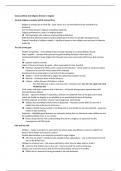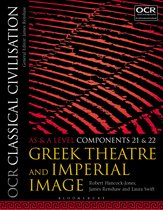Samenvatting
Summary Greek theatre - social, political and religious themes in tragedy
- Vak
- Instelling
- Boek
Notes on: - ancient religious concepts, beliefs and practices, the role of the gods, fate & free will, prophecy & prophets, religious rituals & acts, importance of the polis (city) - including position & role of men, women & slaves in society, political ideas & ideals, importance of family relatio...
[Meer zien]





